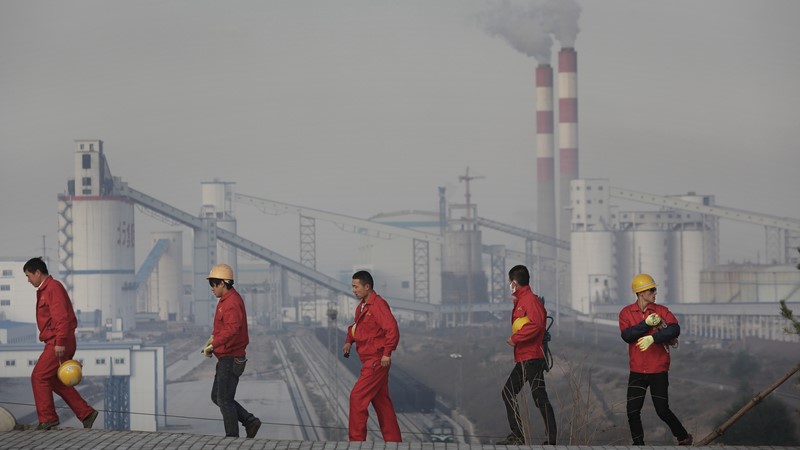China is opposing any references to “major emitters” in discussions about how to scale-up carbon cutting efforts this decade at interim climate talks in Bonn, Germany.
The US proposed that a “work programme” to accelerate emission cuts and close the gap to global climate goals lead to “concrete actions by major emitters with capabilities”.
A group of “like-minded” countries, including China and India, and the Arab group objected to the language. It was deleted from the latest version of the informal notes encapsulating the discussions.
“There is a ping pong fight between the US and China,” Eddy Perez, international climate diplomacy manager of Climate Action Network Canada, told Climate Home, describing the spat as deeply political.
Saudi Arabia’s senior negotiator Ayman Shasly steps back from climate talks
The US has repeatedly sought to make China own up to being the world’s largest emitter. In 2019, it contributed more than 27% of global emissions.
Washington argues that the less greenhouse gas China emits, the lower the losses and damages experienced by vulnerable communities on the climate frontlines.
On a historical emissions basis, China comes a distant second to the US.
While the language of “major emitter” is used in forums such as the G20, to which China is a member, Beijing argues it has no meaning in the formal UN climate process. Using the term would create a new categorisation of countries, which isn’t part of the Paris Agreement, it says.
The backdrop for the discussions is a grim picture of continued rising emissions. Temperature projections based on countries’ latest 2030 emissions targets point to 2.4C of warming.
Countries agreed at the Cop26 climate talks in Glasgow, UK, “to revisit and strengthen the 2030 targets” this year.
So far, only Australia has promised deeper emissions cuts. Brazil updated its climate plan but an accounting change means it is heading for higher emissions than it projected in 2015.
India has yet to commit Narendra Modi’s verbal promise of increased ambition to paper and the timing of Cop27 host Egypt’s stepped up objective remains vague.
Both the US and China’s carbon-cutting efforts are insufficient to put the world on track to 1.5C, according to Climate Action Tracker. But neither have indicated they are likely to improve their headline targets.
“Governments appear to think taking more action is too hard,” said Bill Hare, CEO of Climate Analytics. “The world appears to be sleepwalking to disaster.”
Saudi Arabia’s senior negotiator Ayman Shasly steps back from climate talks
To help bridge the gap to 1.5C, countries agreed at the Cop26 climate talks in Glasgow, UK, to establish “a work programme” to “urgently” accelerate emission cuts this decade.
In Bonn, country delegates thrashed out ideas for what the work should look like, its scope and how long it should last in view of making a decision at Cop27 in Sharm el-Sheikh, Egypt.
But they disagreed on everything, including how to carry the process forward.
Some of the proposals made by countries include helping nations to strengthen and implement their climate plans, closing the ambition gap, enhancing sectoral action, sharing best practice and lessons learnt and increasing finance.
Even the timeline is contentious. China, India and the Arab group say the discussions should last a year and end in 2023. Vulnerable nations, the EU and US say that to be meaningful, the discussions should last until 2030.
A compromise will require political intervention and a decision by ministers at the next climate talks in November.
“Either they choose to find collaborative solutions to help each other cut emissions, or they play the blame game and throw the most vulnerable countries on the frontlines of climate change under the bus,” Tom Evans, of think tank E3G, told Climate Home.
“Some negotiators are fiddling while the world burns,” added his colleague and veteran climate observer Alden Meyer.
